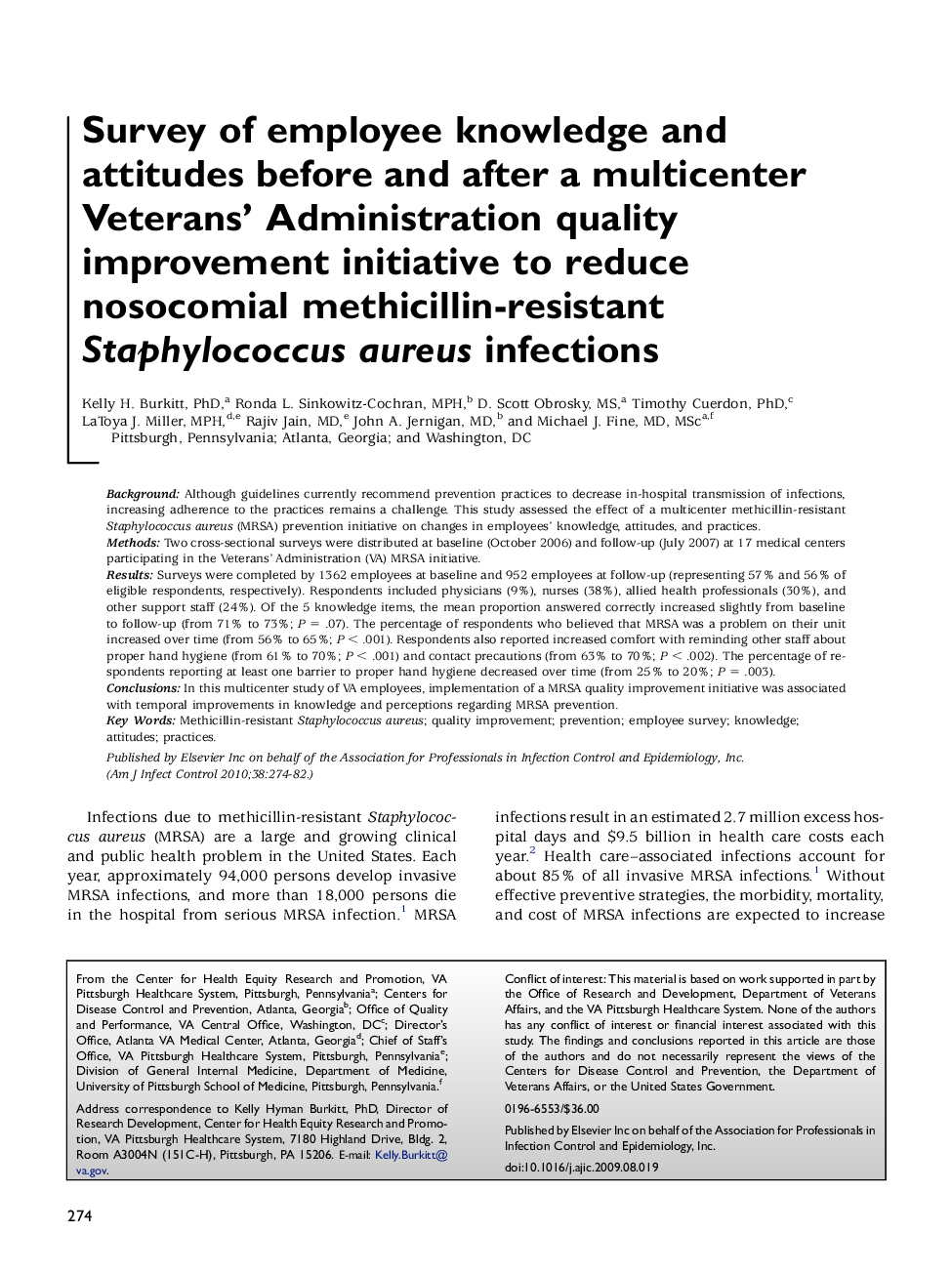| Article ID | Journal | Published Year | Pages | File Type |
|---|---|---|---|---|
| 2640406 | American Journal of Infection Control | 2010 | 9 Pages |
BackgroundAlthough guidelines currently recommend prevention practices to decrease in-hospital transmission of infections, increasing adherence to the practices remains a challenge. This study assessed the effect of a multicenter methicillin-resistant Staphylococcus aureus (MRSA) prevention initiative on changes in employees' knowledge, attitudes, and practices.MethodsTwo cross-sectional surveys were distributed at baseline (October 2006) and follow-up (July 2007) at 17 medical centers participating in the Veterans' Administration (VA) MRSA initiative.ResultsSurveys were completed by 1362 employees at baseline and 952 employees at follow-up (representing 57% and 56% of eligible respondents, respectively). Respondents included physicians (9%), nurses (38%), allied health professionals (30%), and other support staff (24%). Of the 5 knowledge items, the mean proportion answered correctly increased slightly from baseline to follow-up (from 71% to 73%; P = .07). The percentage of respondents who believed that MRSA was a problem on their unit increased over time (from 56% to 65%; P < .001). Respondents also reported increased comfort with reminding other staff about proper hand hygiene (from 61% to 70%; P < .001) and contact precautions (from 63% to 70%; P < .002). The percentage of respondents reporting at least one barrier to proper hand hygiene decreased over time (from 25% to 20%; P = .003).ConclusionsIn this multicenter study of VA employees, implementation of a MRSA quality improvement initiative was associated with temporal improvements in knowledge and perceptions regarding MRSA prevention.
